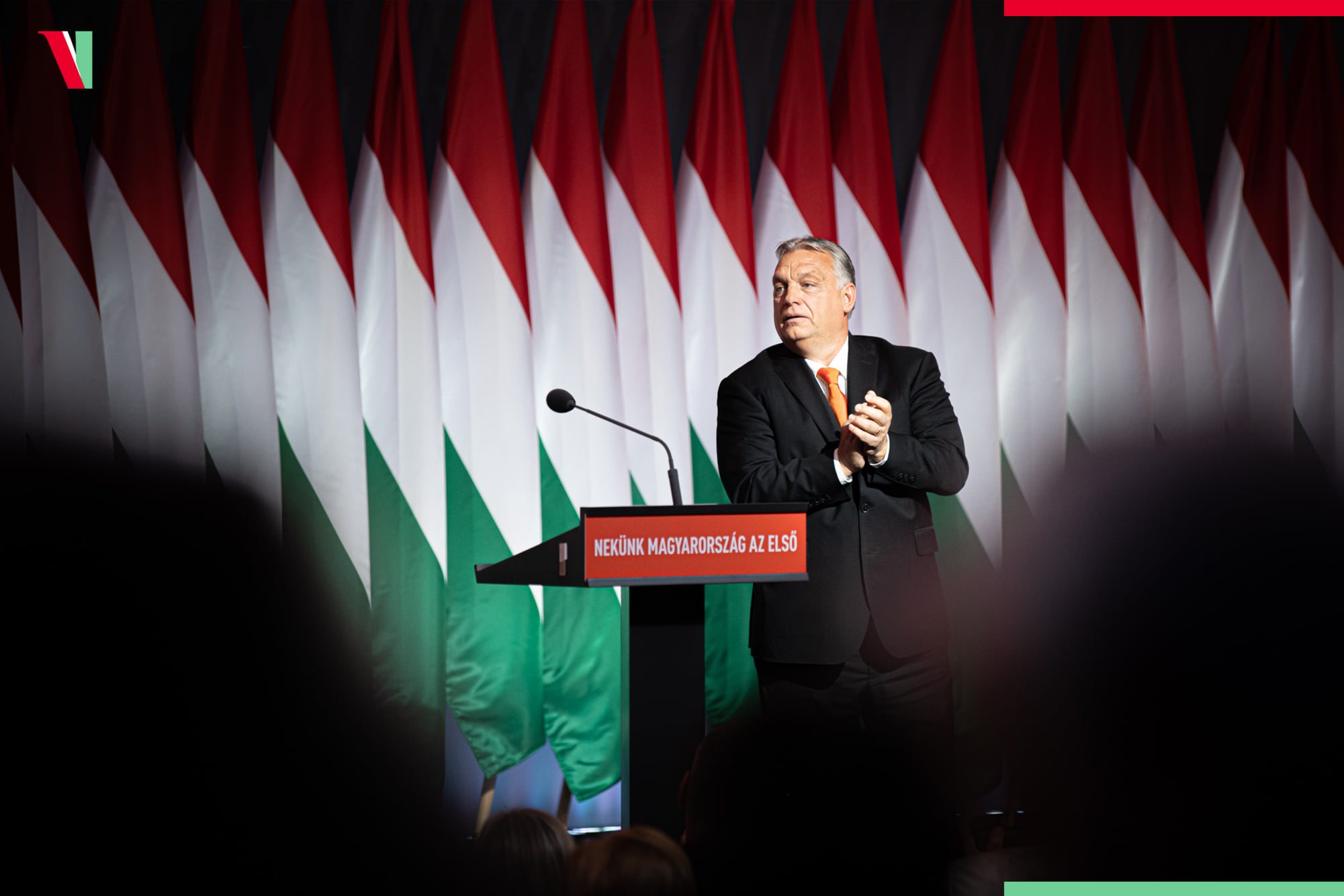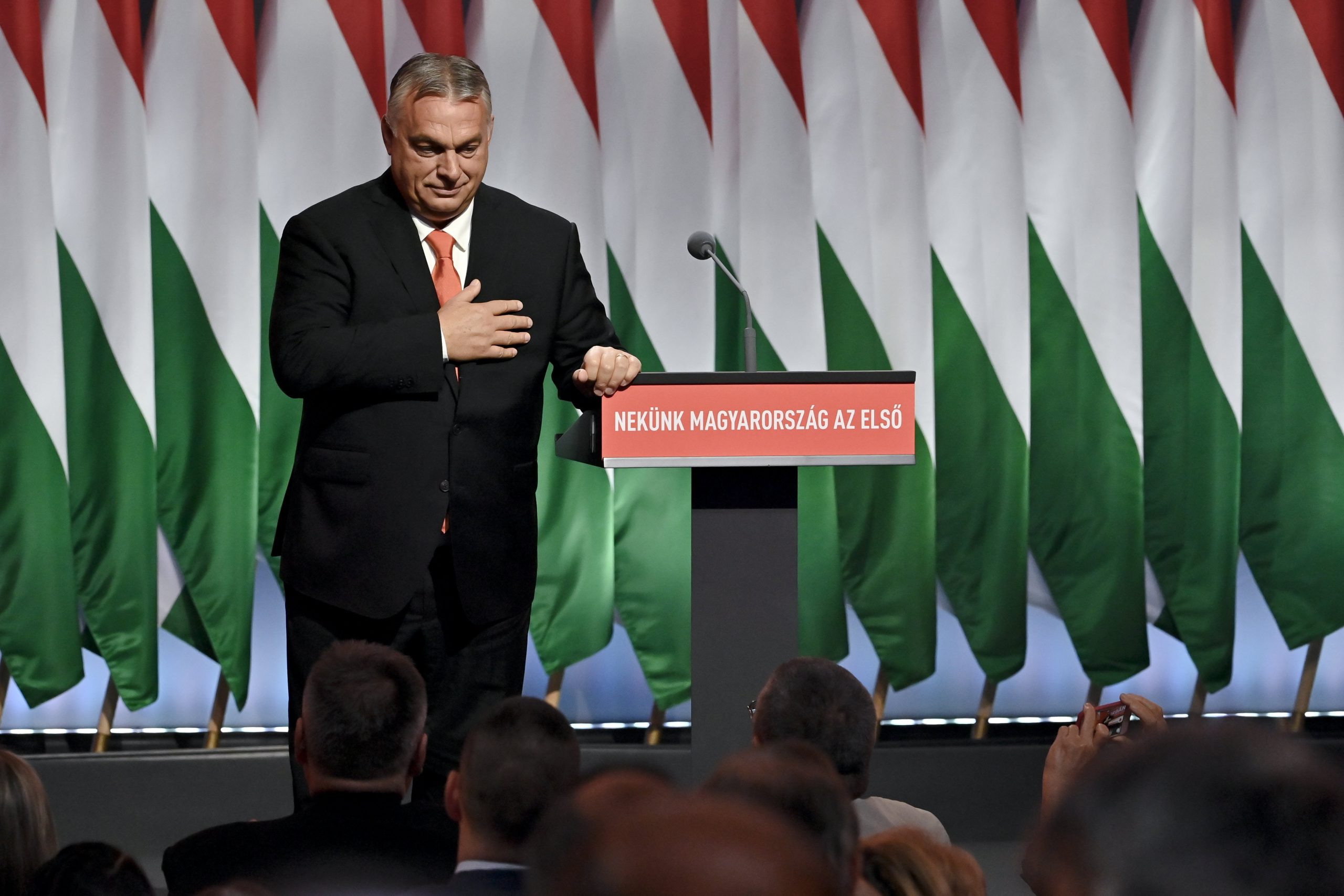
A left-wing pundit compares the weekend congress of the ruling party to Communist-era party congresses, while a pro-government columnist describes it as a key event in the run-up to a crucial parliamentary election.Continue reading

A conservative commentator defends the governing party’s Christian character against left-wing critics, while another appreciates the personal qualities of Viktor Orbán, the re-elected party leader. A liberal pundit, on the other hand, calls Fidesz a party of thieves and dunces.
Hungarian press roundup by budapost.eu

In Mandiner, Gergely Szilvay dismisses as baseless and ignorant a widespread opinion among left-wing critics of the government that Fidesz is not truly Christian because it doesn’t express love towards all human beings. What they call Christianity is in fact secularised, sentimental humanism, he writes. The Left imagines Christianity as a highbrow elite club of people who believe they are perfect. In reality, he explains, Christianity is a religion of sinners who know about their sins and strive to overcome them, but also acknowledge that there will never be a paradise on Earth. Christian governance is therefore imperfect, but still far better than the ‘globalist hippie worldview’ represented but never enacted by ‘the apostles of fake left-wing Christianity’, Szilvay concludes.

In his customary weekly Demokrata editorial, András Bencsik interprets the 29th Congress of Fidesz as an epochal event because it closed one era and opened a new one. For the first time, in fact, party chairman Viktor Orbán spoke about what he called the new Fidesz generation which can take over the leadership of the party at any time. For the moment however, Orbán is the undisputed leader who has led the government through a period of unparalleled development, he suggests. And as a result of, almost all ages in the country will share the fruits of that progress during the coming months. The Prime Minister now intends to take Hungary one step further, to catch up with the most advanced countries of the continent. That ambition will be hard to accomplish Bencsik admits, but ends his editorial asserting that ‘with Him, nothing is impossible’.

In sharp contrast to Bencsik’s tone, Árpád V. Tóta pours vitriol on the Fidesz Congress in his column in Heti Világgazdaság. The only speaker he found worthy of attention was the mayor of the 16th district of Budapest who invited MPs and cabinet ministers to visit their neighbours and explain them what they can expect if the opposition wins the elections. What the commentator found interesting in the speech was the mayor’s claim that the Fidesz centre has still to come up with ‘good answers’ to the unpleasant questions which people may ask during such visits. Tóta takes it for granted that the unpleasant questions the mayor had in mind are related to government corruption and asserts that there can be no ‘good answers’ to such questions. The governing party can only be supported by halfwits, he concludes, and therefore labels Fidesz ‘a party of dunces’.
Featrued photo by Szilárd Koszticsák/MTI